Digital capital flows in Vietnam are entering an important transition phase from a "gray zone" to a regulated market - transparent in transactions, technologically safe and closely connected to the domestic payment system. These are prerequisites to stabilize investors, maintain domestic capital flows and build sustainable development for the entire digital economy .
Digital capital flows into transparent and controlled orbit
After many years of being considered a legal "gray zone", the crypto asset market in Vietnam is entering a completely new phase. Recently, the Government officially issued Resolution 05/2025/NQ-CP, allowing a pilot crypto asset market for a period of 5 years. Dr. Can Van Luc, Chief Economist of BIDV , Member of the Prime Minister's Policy Advisory Council, assessed this as a historic turning point, putting this market on a clear and controlled trajectory. With the three principles of 'prudence', 'control' and 'transparency' emphasized throughout, the Resolution not only aims to protect market participants, prevent risks but also promote the development of domestic financial technology.
After many years of operating in a legal "gray zone", the Vietnamese crypto-asset market is facing a historic turning point. Resolution 05/2025/NQ-CP of the Government has paved the way for digital capital flows with a controlled and transparent pilot framework, promising to turn challenges into golden opportunities for Vietnam to shape a modern digital financial market, attract investors and promote the digital economy.
To ensure maximum safety for digital capital flows, Resolution 05 sets out a series of strict requirements for digital asset trading floors that want to be licensed during the pilot phase. Accordingly, floors must have a minimum charter capital of up to VND 10,000 billion, while the foreign ownership ratio is limited to a maximum of 49%. The shareholder structure prioritizes large, reputable organizations such as banks, securities companies, fund management companies, technology or insurance enterprises. Not only that, the technology infrastructure must meet the highest safety standards, and the staff must have extensive experience in finance, technology and risk management. These strict regulations are the foundation for building trust, which has been lacking for many years.
The future of digital capital in Vietnam will develop strongly.
Speaking to reporters, market expert Tran Manh Hung said: "Resolution 05 is not just a simple legal framework, but also a comprehensive 'blueprint' for how the crypto market will operate in the next 5 years. This blueprint includes all aspects from licensing processes, transaction management, asset custody, dispute resolution, to mechanisms to protect the legitimate rights of investors. This is an important milestone, reshaping the game and confidence for the entire market."
For digital capital to be well managed, ensuring transparency and investor rights, many important and indispensable elements. First of all, the exchange must be legally licensed, have a governing body, clear issuing and depository organizations, and be legally responsible. Next, KYC (Know Your Customer) and AML/CFT (Anti-Money Laundering/Anti-Terrorist Financing) standards must be strictly enforced, with measures to monitor unusual transactions and control cross-border transactions.
Besides, one of the highlights of the Resolution is tightening cash flow, ensuring national economic sovereignty.
A particularly important new point is that all domestic crypto-asset payment transactions must be made in Vietnamese Dong (VND) and deposited domestically. This regulation both ensures national monetary sovereignty and helps the State manage taxes, control capital flows and limit foreign currency abuse.
Technology security and secure infrastructure are vital, requiring the highest information security standards, strong cyber-attack protection and clear incident handling procedures. Transparency in token/crypto asset issuance is also a must, with clear disclosure of benefits, risks, fee structures, team information and the use of blockchain to ensure commitment.
Finally, a tight inter-sectoral supervision mechanism from the Ministry of Finance, the State Bank, the Ministry of Public Security, the State Securities Commission and relevant agencies, together with a mechanism to protect investors and resolve disputes fairly, will be a solid shield for the market.
Capacity building for international integration
With the new legal framework, the market is full of expectations for a more transparent development era. A reporter's survey shows that investors are looking forward to a real transformation when the legal framework for digital assets is issued. Ms. Nguyen Thu Trang, a long-time digital asset investor, expressed optimism: "A clear legal framework will help the market 'reduce noise', clearly distinguish reputable projects from risky projects. I hope that licensed exchanges will be more transparent with information, so that we can feel more secure when investing. In the past, I often had to rely on online communities or technology news, friends to evaluate projects, but now I expect a more solid legal foundation." This expectation is reinforced by the great potential of shifting capital flows and attracting investment.
Another big expectation is the integration of the Vietnamese Dong (VND) and the domestic payment system when the market is formalized. According to VinaCapital, one of the key moves when there is a legal framework is to move crypto-asset trading from foreign exchanges to domestic ones. Licensed exchanges need to be able to connect with banks, deposit/withdrawal gateways in VND and comply with tax regulations. This will help restore most of the capital flow that is moving abroad, creating benefits for the domestic economy.
In addition, many small fund managers and domestic blockchain startups also expect that if Vietnam implements serious and transparent policies, it will attract more international investment – not only from individuals but also from large funds, fintech and insurance companies interested in digital assets.
However, despite the prospects, the road ahead still has many barriers. High entry costs, with requirements for charter capital, technology infrastructure and specialized personnel, can make it difficult for small exchanges and startups. If the number of licensed exchanges is limited, the market may face low liquidity, lack of competition and high transaction costs for users. Technological and security risks are always latent, threatening users' assets if the exchange is attacked. In addition, investors' lack of understanding and "FOMO" (fear of missing out) mentality are still big problems. The transnational nature of crypto assets also poses challenges in synchronizing international laws and the risk of cross-border fraud and money laundering if there is a lack of international cooperation.
Vietnam has the opportunity to become the digital asset center of Southeast Asia.
For crypto asset management to be truly effective, financial experts all agree that it is necessary to issue detailed guidelines and clear regulations on token classification, exchange licensing mechanisms, VND deposits/withdrawals, financial reports, auditing and technical standards. Effective inter-sectoral coordination between the Ministry of Finance (focal point), the State Bank, the State Securities Commission, the Ministry of Public Security... is key, each party needs to have clear responsibilities and share information using technology.
Furthermore, Vietnam needs to build a high-tech monitoring system (RegTech/SupTech) that applies AI and Big Data to detect unusual and fraudulent transactions and ensure network security. At the same time, it is necessary to strengthen the protection of small investors with a protection fund, require transparency of project information, and a fair and quick dispute resolution mechanism. To ensure liquidity and healthy competition, it is necessary to encourage more exchanges to meet the conditions, support startups, integrate VND payments and ensure reasonable transaction costs. Finally, communication and market education are extremely important, helping investors clearly recognize their rights and risks, and popularize knowledge about blockchain, tokenomics and responsible investment.
According to current reports and estimates (late 2023, early 2024), the Vietnamese crypto asset market has millions of participants in transactions. Vietnam is consistently among the top countries with a high percentage of people owning cryptocurrencies. The total annual transaction value is estimated at tens of billions of USD, but most of these transactions are still taking place through international exchanges, beyond the control and tax collection of the state. "This is the basis for believing in a future of sustainable development and deep integration," Mr. Hung emphasized.
According to Mr. Hung, establishing an official legal framework will help shift this capital flow back to the country – bringing tax benefits, risk control, and supporting the development of domestic digital asset infrastructure. If regulations are fully issued and strictly enforced, Vietnam has a great opportunity to become an attractive destination for digital asset investment, blockchain startups, and fintech in the region.
Notably, experts predict that within the next 2-3 years, when the legal framework is complete, there may be a number of large exchanges officially licensed and operating legally in Vietnam, integrating VND payments, domestic custody, publishing annual reports and independent audits. Asset tokenization models other than cryptocurrencies – such as commercial invoices, real estate, carbon credits – can also develop strongly when the legal framework is transparent and permissive.
"A turning point in managing and making digital capital flows transparent" is not just a slogan, but a vital requirement for Vietnam if it wants to maintain its reputation, protect its people and promote the development of the digital economy. Building and implementing a legal framework is an important first step, creating a framework for the crypto asset market to operate in a controlled, transparent and fair environment.
"The success of this journey depends on three main pillars: effective policies, technology and financial management capacity, and a sense of responsibility from both businesses and investors. If these factors are balanced, Vietnam can completely turn digital capital flows - crypto assets - from a potentially risky field into a new driving force for sustainable development and international integration," Mr. Luc further emphasized./.
Source: https://vtv.vn/tu-vung-xam-phap-ly-den-minh-bach-dong-von-so-kien-tao-suc-bat-moi-100250924213459387.htm


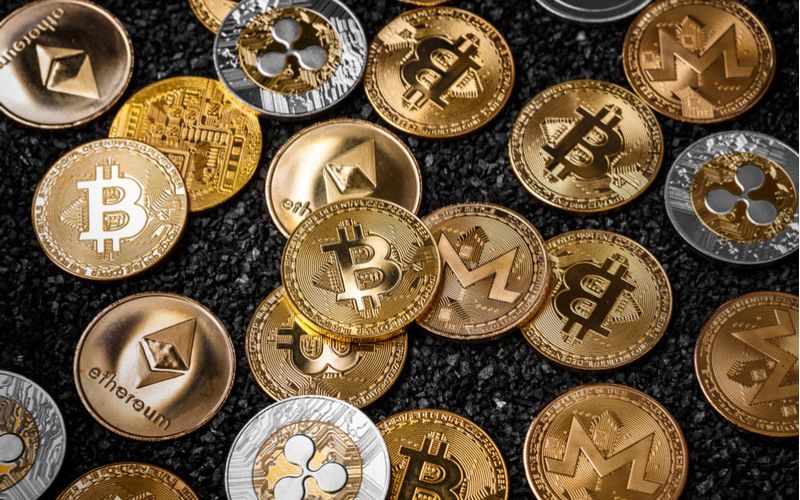
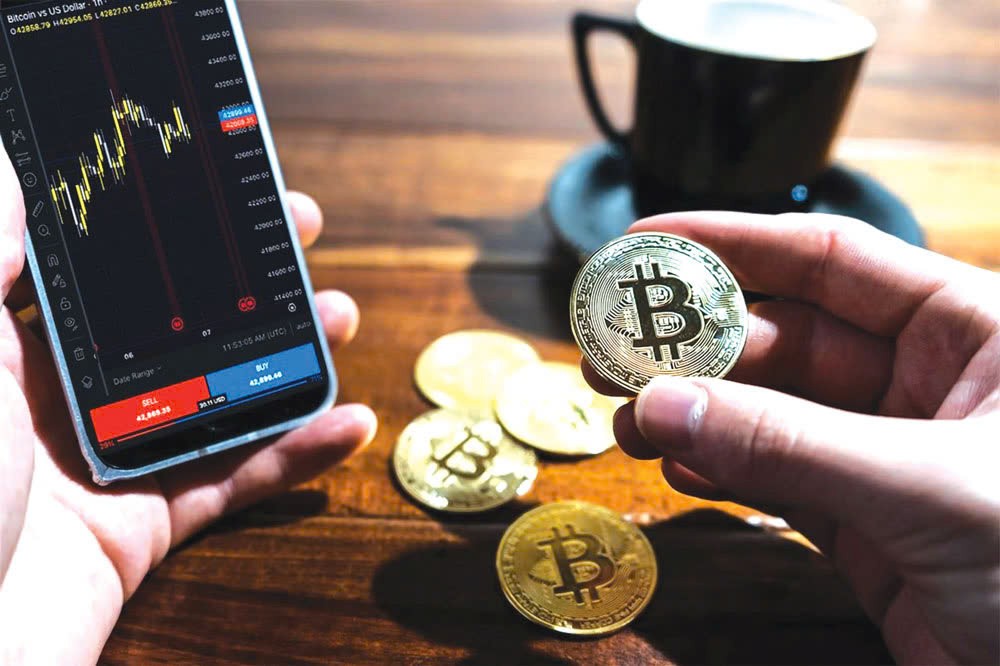

![[Photo] Many streets in Hanoi were flooded due to the effects of storm Bualoi](https://vphoto.vietnam.vn/thumb/1200x675/vietnam/resource/IMAGE/2025/9/29/18b658aa0fa2495c927ade4bbe0096df)
![[Photo] General Secretary To Lam receives US Ambassador to Vietnam Marc Knapper](https://vphoto.vietnam.vn/thumb/1200x675/vietnam/resource/IMAGE/2025/9/29/c8fd0761aa184da7814aee57d87c49b3)
![[Photo] General Secretary To Lam attends the ceremony to celebrate the 80th anniversary of the post and telecommunications sector and the 66th anniversary of the science and technology sector.](https://vphoto.vietnam.vn/thumb/1200x675/vietnam/resource/IMAGE/2025/9/29/8e86b39b8fe44121a2b14a031f4cef46)
![[Photo] National Assembly Chairman Tran Thanh Man chairs the 8th Conference of full-time National Assembly deputies](https://vphoto.vietnam.vn/thumb/1200x675/vietnam/resource/IMAGE/2025/9/29/2c21459bc38d44ffaacd679ab9a0477c)

![[Photo] General Secretary To Lam chairs the meeting of the Central Steering Committee on preventing and combating corruption, waste and negativity](https://vphoto.vietnam.vn/thumb/1200x675/vietnam/resource/IMAGE/2025/9/29/fb2a8712315d4213a16322588c57b975)











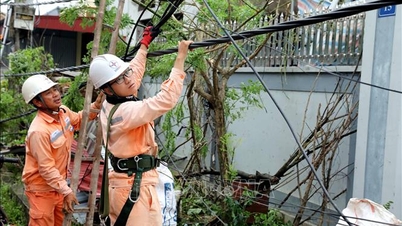














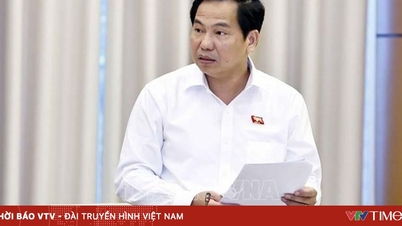
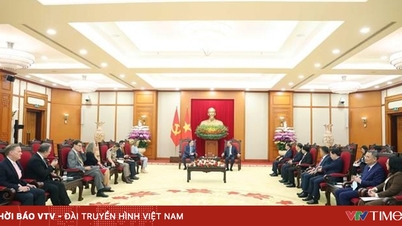

















































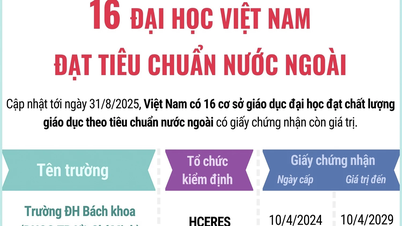



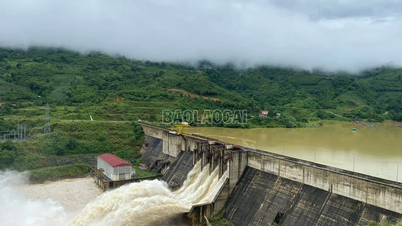


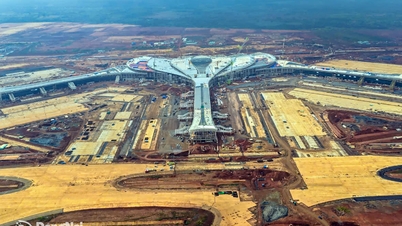














Comment (0)